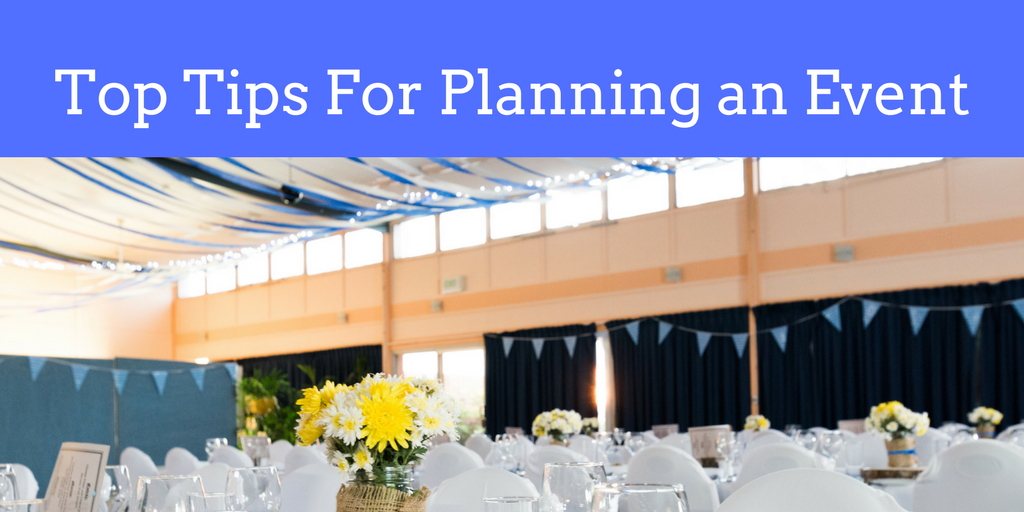Planning an event can be a stressful endeavor—especially if you’ve never planned a large event before. However, event planning is an essential skill to have for business owners and entrepreneurs. Events like fundraisers, award ceremonies, and open houses are great ways to be active in the community, network with other professionals, and show employees you care about them. Below are some of the top tips that will ensure your next event goes as smoothly as possible.
Before You Get Started
The first step to planning a successful event is visualizing the look and feel of it. You should have a clear goal for the event, understand the audience you want to attract, and the reason for the event being held in the first place. These initial considerations will help guide you as you get into the specific details of the event.
First Steps
- Checklist – When you’re brainstorming for the event, it helps to create a checklist. A checklist will help you keep track of everything that needs to get done in order for the event to be a success.
- Budget – Every event begins with a budget. Once you know how much money you have to work with you can start adding up all of the anticipated costs. Make sure that you keep receipts for everything that you purchase so that you can accurately determine the cost of the event in the end.
- Location – The location of your event plays a big role in its success or failure. When choosing a location, make sure that it is spacious enough for your guests but not so spacious that the event seems under attended. You should also make sure that there are elevators/ramps for attendees with special needs. Before the actual event takes place you should become comfortable with the location. Visit it multiple times if necessary in order to plan properly.
- Food/Drinks – Every event needs food. If you plan to serve alcohol, you have to consider whether you will have an open bar or some other option. When it comes to the food you serve, it’s a good idea to have multiple options so that people with dietary restrictions will still be able to enjoy themselves. Here is a food and beverage calculator that will help you get started.
- Publicity – If you want people to show up to your event, then you have to promote it. Print and online advertising are two popular ways to market your event. You should also take advantage of your personal network. LinkedIn, emails, and calling people are three ways that you can spread the word about your event.
After the Event
Many people ignore the final step of planning an event: reflect on its strengths and weaknesses. If possible, ask attendees to submit a short evaluation form. Even if you can’t get their feedback, it’s worth thinking about how you could have done things better. This will come in handy when you plan your next event.

